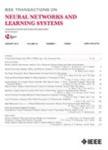版权所有:内蒙古大学图书馆 技术提供:维普资讯• 智图
内蒙古自治区呼和浩特市赛罕区大学西街235号 邮编: 010021

作者机构:City Univ Macau Fac Data Sci Macau Peoples R China Shenzhen Univ Adv Technol Fac Comp Sci & Control Engn Shenzhen 518055 Peoples R China
出 版 物:《IEEE TRANSACTIONS ON NEURAL NETWORKS AND LEARNING SYSTEMS》 (IEEE Trans. Neural Networks Learn. Sys.)
年 卷 期:2025年第PP卷
页 面:PP页
核心收录:
学科分类:0808[工学-电气工程] 08[工学] 0812[工学-计算机科学与技术(可授工学、理学学位)]
主 题:Training Servers Data models Generators Machine learning algorithms Feature extraction Classification algorithms Generative adversarial networks Federated learning Accuracy Fair machine learning federated learning (FL) generative model
摘 要:Federated learning (FL) has gained significant attention as it facilitates collaborative machine learning among multiple clients without centralizing their data on a server. FL ensures the privacy of participating clients by locally storing their data, which creates new challenges in fairness. Traditional debiasing methods assume centralized access to sensitive information, rendering them impractical for the FL setting. Additionally, FL is more susceptible to fairness issues than centralized machine learning due to the diverse client data sources that may be associated with group information. Therefore, training a fair model in FL without access to client local data is important and challenging. This article presents AFed, a straightforward, yet effective framework for promoting group fairness in FL. The core idea is to circumvent restricted data access by learning the global data distribution. This article proposes two approaches: AFed-G, which uses a conditional generator trained on the server side, and AFed-GAN, which improves upon AFed-G by training a conditional GAN on the client side. We augment the client data with the generated samples to help remove bias. Our theoretical analysis justifies the proposed methods, and empirical results on multiple real-world datasets demonstrate a substantial improvement in AFed over several baselines.